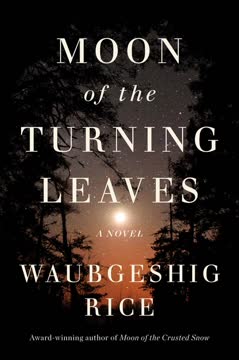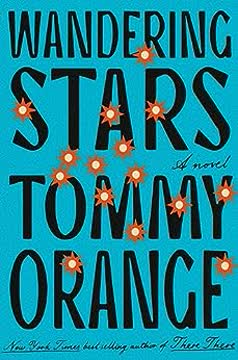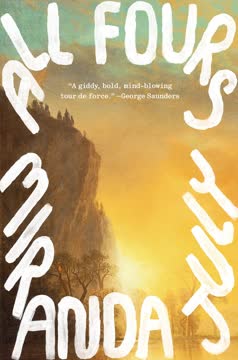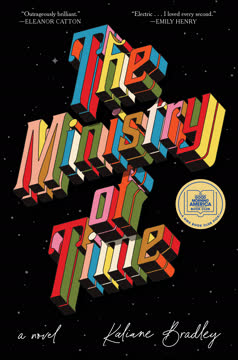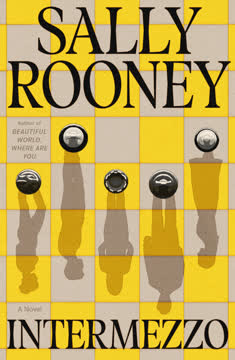Plot Summary
Disappearing Footprints in Brooklyn
On an ordinary October morning, Lilia leaves Eli's Brooklyn apartment, her departure marked only by the absence of a childhood photograph and her suitcase. Eli, lost in his academic work, fails to notice the subtle signs of her impending disappearance. When he realizes she is gone, he is left with a sense of inevitability and a haunting emptiness. The ordinary details of their morning together become magnified in his memory, replayed obsessively as he searches for meaning in her absence. The city continues on, indifferent to his loss, and Eli is left to wander, haunted by the normalcy of the world and the sudden void Lilia has left behind.
A Childhood of Flight
Lilia's earliest memories are of constant movement—parks, libraries, motels, and endless highways. Abducted by her father at age seven, she is swept away from her sleeping mother into a life of aliases and perpetual travel. Her father, a restless and loving fugitive, teaches her to live in the present, erasing the past and her mother from their story. The landscape of her childhood is dreamlike, shaped by mirages and the fading lines of maps. Lilia's identity becomes fluid, her sense of home and self dissolving with each new destination, leaving her with a profound inability to stay rooted anywhere.
Eli's Restless Longing
Before Lilia, Eli is plagued by a sense of inaction and fraudulence. Surrounded by friends who talk about art but never create, he feels stagnant, unable to finish his thesis on dying languages or take risks. Meeting Lilia, a true traveler and doer, exposes his own inertia. Their relationship is marked by his admiration for her authenticity and his fear of her inevitable departure. Lilia's presence challenges Eli to confront his own passivity, but he remains haunted by the knowledge that he is always a step behind, unable to truly keep her.
The Language of Absence
Eli's academic obsession with endangered languages becomes a metaphor for the losses in his own life. He explains to Lilia that every language contains unique, untranslatable concepts, and the extinction of a language is the loss of an entire way of being. Lilia, fascinated by living languages and translation, collects words and names as if to preserve fragments of her own vanishing self. Their shared love of language and loss binds them, but also underscores the impossibility of fully understanding or possessing one another.
The Mother's Grief
Lilia's mother, left behind in Quebec, is defined by the absence of her daughter. Her grief is public and private, captured in television interviews and the rituals of searching. The night of Lilia's abduction is replayed in her memory and in the evidence left behind—bare footprints in the snow, a dropped bunny, broken glass. The trauma fractures the family, leaving Lilia's half-brother Simon as a silent witness. The mother's longing to forget is as powerful as her longing to find, and the wound of Lilia's absence never heals.
Lists, Names, and Secrets
In her transient life, Lilia creates lists—of names, places, and words in many languages. These lists are both a record of her many identities and an attempt to impose order on chaos. Eli discovers these lists and is both fascinated and unsettled by the secrets they represent. Lilia's need to document her existence is a way of asserting control, but also a sign of her deep-rooted instability. The lists become a symbol of her fragmented self, each name and word a piece of a life that is always in motion and never whole.
The Detective's Pursuit
Christopher, a Montreal detective, becomes obsessed with Lilia's case. Drawn in by the poetry of her vanishing and the cryptic messages she leaves in motel Bibles, he follows her trail across North America. His pursuit is both professional and personal, echoing his own childhood in a traveling circus and his failing marriage. Christopher's empathy for Lilia and her father complicates his role as hunter; he becomes a witness rather than a captor, haunted by the knowledge that some stories are not meant to be resolved.
The Art of Vanishing
As she grows older, Lilia perfects the art of leaving. She moves from city to city, forming brief connections and then slipping away. Her relationships are marked by impermanence—lovers, friends, and even family are left behind. The act of departure becomes both a compulsion and a form of self-preservation. Lilia's inability to stay is not courage, but a deep-seated fear of being found, of being known. Her life is a series of exits, each one both a loss and a liberation.
Montreal's Fortress of Language
Eli's search for Lilia leads him to Montreal, a city defined by its struggle to preserve the French language against the tide of English. The city's linguistic politics mirror the novel's themes of identity, belonging, and exclusion. Eli, unable to speak French, is an outsider, navigating a landscape where language is both a barrier and a marker of survival. The city's cold, its labyrinthine streets, and its fortress mentality become a backdrop for Eli's own sense of exile and longing.
The Witness and the Shepherd
Christopher, the detective, comes to see himself not as a hero but as a witness—a shepherd observing the flight of Icarus. He recognizes that some stories require an observer to be real, that memory is too unreliable to be left to the protagonists alone. His pursuit of Lilia becomes an act of witnessing, a way of ensuring that her story, and the pain and beauty within it, are not lost. The role of the witness is both passive and essential, a reminder that not all lives are meant to be saved, but all deserve to be seen.
The Tightrope Walker
Michaela, Christopher's daughter, grows up in the shadow of her father's obsession with Lilia. She becomes a literal tightrope walker, practicing in circus school and later performing dangerous stunts in Montreal's alleyways. Michaela's life is a balancing act between longing and loss, between her own desires and the legacy of abandonment. Her relationship with Lilia is fraught with envy, fascination, and a shared sense of being outsiders. Michaela's eventual suicide is both a final act of escape and a desperate attempt to be seen.
The Accident and Its Echo
The novel's central trauma is revealed: as a child, Lilia was thrown through a window by her mother, an act of violence that left her scarred and amnesiac. Her brother Simon, witnessing the event, called their father to rescue her, setting in motion the years of flight. This secret, long buried, is the source of Lilia's compulsion to run and her inability to remember or stay. The accident reverberates through every relationship, shaping the destinies of Lilia, her family, and those who pursue her.
The End of the Chase
After years of following Lilia, Christopher finally confronts her and her father on a mountain road. He tells them he will stop chasing, recognizing that the pursuit has become its own form of violence. The encounter is both an ending and a release, allowing Lilia and her father to stop running and begin to imagine a life of stillness. Christopher's decision to become a witness rather than a hunter marks a turning point, acknowledging the limits of rescue and the necessity of acceptance.
The Last Goodbye
Lilia's life is a series of farewells—lovers, friends, and cities left behind. Her final departure from Montreal, after Michaela's death, is marked by a sense of exhaustion and inevitability. She flees to Rome, discarding her lists and the remnants of her old life into the Tiber. The act is both a cleansing and a surrender, an acknowledgment that some stories cannot be resolved, only survived. Lilia's journey ends not with closure, but with the acceptance of perpetual movement and the impossibility of return.
The Weight of Memory
Memory is both a refuge and a torment for the characters. Lilia's amnesia protects her from unbearable pain but also traps her in cycles of flight. Eli is haunted by memories of Lilia, replaying their last days together in endless loops. Christopher is burdened by the memories of his own failures and the lives he cannot save. The novel suggests that memory is unreliable, selective, and often a source of suffering, but also that it is essential to identity and meaning.
The Language of Loss
The novel's central metaphor is the loss of language—the extinction of words, the inability to translate experience, the silence between people. Each character is marked by a unique, untranslatable grief: Lilia's longing for a home she cannot remember, Eli's yearning for connection, Christopher's regret, Michaela's loneliness. The failure of language to bridge these gaps is both a tragedy and a source of beauty, a reminder that some losses can only be witnessed, not healed.
Immersion and Escape
In the end, the novel asks whether it is possible to stop running, to immerse oneself in life rather than skating over its surface. Lilia, after years of flight, finds a measure of peace in her new life abroad, though the past continues to echo. Eli, shattered by loss, resolves to immerse himself in the world, to risk connection and pain. The story closes with the recognition that escape is both a necessity and a limitation, and that true belonging may lie not in staying or leaving, but in the willingness to be seen and remembered.
Characters
Lilia
Lilia is the novel's enigmatic center, a woman shaped by a childhood abduction and a life spent in constant motion. Abducted by her father after a violent incident with her mother, Lilia grows up with no stable identity, adopting new names and cities as easily as changing clothes. Her psychological landscape is marked by amnesia, compulsive list-making, and a deep inability to stay. Relationships are fleeting; she loves but cannot remain, always compelled to leave before she can be left. Lilia's journey is one of both escape and self-erasure, her longing for home and belonging forever at odds with her need for freedom. Her development is a slow, painful reckoning with the trauma at her core and the possibility of peace.
Eli
Eli is a failed scholar and would-be writer, paralyzed by indecision and self-doubt. His fascination with dying languages mirrors his own fear of irrelevance and loss. Meeting Lilia awakens in him a longing for authenticity and action, but he is always a step behind, unable to match her capacity for movement and change. Eli's love for Lilia is both redemptive and destructive, exposing his own inertia and deepening his sense of inadequacy. After her disappearance, he becomes obsessed with finding her, but ultimately must confront the limits of his own agency and the necessity of letting go. His arc is one of painful growth, from passive observer to someone willing to risk immersion in life.
Christopher Graydon
Christopher is a Montreal detective whose pursuit of Lilia becomes a consuming quest. His own childhood in a traveling circus and his failing marriage make him uniquely empathetic to Lilia's plight. As he follows her across the continent, he shifts from hunter to witness, recognizing the futility and violence of endless pursuit. His relationship with his daughter Michaela is strained by his obsession, and his own sense of displacement mirrors Lilia's. Christopher's development is marked by increasing self-awareness and the painful acceptance that some stories cannot be resolved, only observed.
Michaela
Michaela, Christopher's daughter, grows up in the shadow of her father's obsession with Lilia. She becomes a literal and figurative tightrope walker, balancing her own desires against the legacy of loss and neglect. Michaela's life is marked by loneliness, addiction, and a desperate need to be seen. Her fascination with Lilia is both envy and kinship, and her eventual suicide is a tragic culmination of her inability to find balance or belonging. Michaela's arc is a poignant exploration of the collateral damage of obsession and the longing for witness.
Lilia's Father
Lilia's father is both her rescuer and her captor, taking her away from an abusive mother and raising her on the run. His love is fierce and resourceful, but also marked by paranoia and restlessness. He teaches Lilia to live in the present, to forget the past, and to survive by constant movement. His own history of displacement and failed relationships shapes his choices, and his eventual decision to stop running is an act of love and exhaustion. He is a complex figure, both heroic and flawed, whose actions set the entire narrative in motion.
Lilia's Mother
Lilia's mother is a figure of absence and trauma, her life defined by the loss of her daughter. Her violence toward Lilia is the novel's central secret, and her subsequent grief is both genuine and self-destructive. She is unable to move on, caught between longing and the wish to forget. Her relationship with Simon, Lilia's half-brother, is strained by the family's fracture. The mother's presence haunts Lilia and shapes the destinies of everyone connected to her.
Simon
Simon, Lilia's half-brother, is a quiet but pivotal figure. As a child, he witnesses the violence that leads to Lilia's abduction and becomes complicit in her escape by calling their father. His loyalty to Lilia is unwavering, and he remains a silent guardian, dialing her number in the night and keeping her secret. Simon's role is that of the unseen witness, the one who remembers and enables Lilia's survival, even as he is left behind.
Clara
Clara is the waitress in New Mexico who offers Lilia and her father a home and a chance at stability. Her house, filled with blue and images of flight, becomes a rare place of safety and rest. Clara's love for Lilia's father and her acceptance of Lilia provide a glimpse of what a settled life could be. She is a figure of serenity and kindness, a counterpoint to the chaos of Lilia's upbringing, and her presence allows for the possibility of healing.
Erica
Erica is Lilia's lover in Chicago, the first person Lilia warns before leaving. Their relationship is marked by tenderness and the inevitability of departure. Erica's heartbreak and her gift of a silver necklace to Lilia symbolize the pain of loving someone who cannot stay. Erica's presence in the narrative underscores the cost of Lilia's compulsion to leave and the wounds left in her wake.
Geneviève
Geneviève is Eli's friend in Brooklyn, a painter and intellectual who challenges his ideas and exposes his insecurities. Her arguments about art, language, and meaning provide a critical counterpoint to Eli's romanticism. Geneviève's skepticism and her own struggles with creativity mirror the novel's themes of authenticity and the difficulty of action. She is a minor but significant presence, representing the world Eli leaves behind in his pursuit of Lilia.
Plot Devices
Nonlinear Narrative and Fragmented Memory
The novel employs a nonlinear structure, moving fluidly between past and present, different points of view, and various locations. This fragmentation reflects the characters' psychological states, particularly Lilia's amnesia and Eli's obsessive replaying of memories. The use of lists, photographs, and recurring motifs (mirages, languages, tightropes) creates a sense of dislocation and repetition. Foreshadowing is woven throughout, with early hints of trauma and loss that are only fully revealed later. The narrative's structure reinforces the themes of absence, the unreliability of memory, and the impossibility of closure.
Motifs of Language, Travel, and Disappearance
The motif of endangered languages and untranslatable words serves as a metaphor for the characters' emotional isolation and the uniqueness of their grief. Travel is both literal and symbolic—a means of escape, a compulsion, and a source of identity. Disappearance recurs at every level: people vanish, languages die, memories fade. The novel uses these motifs to explore the tension between the desire for connection and the inevitability of loss.
The Witness and the Unresolvable Mystery
The detective's role as witness rather than savior is a key plot device. The story resists the conventions of the mystery genre; the "case" of Lilia's disappearance is never truly solved, and the focus shifts from finding answers to bearing witness. The presence of multiple observers—Eli, Christopher, Simon, Michaela—underscores the idea that some stories can only be remembered, not fixed. The unresolved ending, with Lilia's continued movement and the deaths and departures of others, reinforces the novel's commitment to ambiguity and the endurance of mystery.
Analysis
Last Night in Montreal is a haunting exploration of what it means to live in the aftermath of trauma, to be shaped by absence, and to seek meaning in a world of perpetual motion. Through its fragmented narrative and shifting perspectives, the novel examines the ways in which people become fugitives from their own lives—whether through literal flight, emotional withdrawal, or the erasure of memory. The extinction of languages becomes a powerful metaphor for the loss of self, the untranslatability of pain, and the longing for connection that can never be fully realized. The story resists easy resolution, insisting instead on the necessity of witnesses, the endurance of longing, and the beauty and sorrow of lives lived on the margins. In a world where everyone is running from something, the novel suggests that true belonging may be found not in arrival or return, but in the willingness to be seen, to remember, and to let go.
Last updated:
Review Summary
Last Night in Montreal received mostly positive reviews for its compelling story, beautiful writing, and complex characters. Readers praised Mandel's debut novel for its exploration of themes like identity, memory, and the inability to stay in one place. Many found the narrative structure intriguing, though some felt character motivations were unclear. The atmospheric and mysterious tone resonated with fans of literary fiction. While some readers found the ending unsatisfying, most appreciated the book's emotional depth and Mandel's unique storytelling style.
Similar Books
Download PDF
Download EPUB
.epub digital book format is ideal for reading ebooks on phones, tablets, and e-readers.


